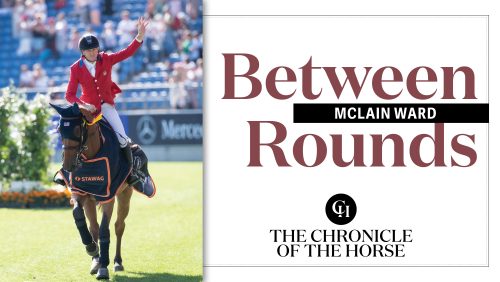In recent months, the U.S. Equestrian Federation General Rule 314, otherwise known as the “mileage rule,” has again been a hot topic of discussion.
Though I’m not an authority on horse show and competition management, I have seen horse shows evolve since the rule’s inception in 1975. Especially after the COVID-19 pandemic, I now firmly believe that the mileage rule is no longer necessary or beneficial in today’s competition environment.
Let me start by sharing my understanding of its intended purpose and how that landscape has shifted over the past several decades.
When the mileage rule was created by the American Horse Shows Association, the precursor to USEF, horse shows across the country looked much different than they do today. The concept of a multi-month, single-location horse show complex was unheard of. It’s hard to think of a competition that extended beyond two weeks. At the same time, there were fewer competitors and more local and regional shows.
The original goal of the mileage rule was to support horse shows by eliminating competition between different nearby shows and ensuring, if an organizer spent time and money to put on a competition, that there would be a critical mass of horses and riders attending. Because of Horse of the Year Awards, competitors would seek out an AHSA-recognized show to gain points. Thus, the AHSA served a critical role in putting competitors and competitions together, providing membership to competitors, licensing for horse shows, and providing a rulebook to govern competition.
However, today’s landscape looks different than it did in 1975. There has been a growth and consolidation among the competition organizations that run USEF-sanctioned horse shows. Often, competitions occur in one location for several months at a time. This effectively prohibits any other competitions that can offer a different experience from running in the same region. Nowadays, there seems to be no shortage of competitors, and many shows run out of stalls.
ADVERTISEMENT
The mileage rule now prevents riders from being able to choose, which stifles competition, reduces variety and limits access to shows that can offer a different price point and experience. Variety in competition venues—including different footing, rings, weather and atmosphere—creates better riders and better horses. Competing in the same complex week after week does not present any new or different situations that help a horse and rider grow. It’s the same arenas, with the same fences, over and over again.
Without the mileage rule, alternative competitions can be offered. The industry is robust enough that free-market principles should be allowed to operate, and competition organizations should succeed or fail on their merits. Having financial and competition venue alternatives keeps the sport vibrant and accessible to USEF members who have different financial situations, different horses and different aspirations at different times during their equestrian careers.
It is logistically easier for trainers with many horses and riders to go to one venue for an extended period rather than to travel to several different shows, so there may be a place for large show venues to cater to the large barns, but not at the expense of the general USEF member. Both riders and horses—whether they come from a larger or smaller barn—would benefit from the opportunity to compete at different venues in the same geographical areas at levels and costs that make sense for each.
Discontinuing the mileage rule would not mean discontinuing licensing of competitions. USEF-sanctioned competitions are important in today’s horse show environment because quality, safety, officiating and other rules are important to fair and safe sport. However, the mileage rule does not contribute to those goals.
The USEF is responsible for the sanctioning and regulation of equestrian events in the U.S. As the national governing body for equestrian sport, safety and standards are key. USEF-sanctioned events uphold safety and fairness standards related to drugs and medications, venue safety, and levels of competition that offer competitors a ladder from which to progress, for example.
For decades, our sport has turned out successful, well-rounded rider and horse athletes, largely because of the opportunity to experience different atmospheres and challenges. If we want to preserve our sport’s heritage and create an environment that encourages rider and horse growth, I believe it’s time we discontinue the mileage rule for USEF-sanctioned competitions. Our sport is mature enough and large enough to do so.
ADVERTISEMENT
Armand Leone of Leone Equestrian Law LLC is a business professional with expertise in health care, equestrian sports and law. An equestrian athlete dedicated to fair play, safe sport and clean competition, Leone served as a director on the board of the U.S. Equestrian Federation and was USEF vice president of international high performance programs for many years. He served on the USEF and U.S. Hunter Jumper Association special task forces on governance, safety, drugs and medications, trainer certification, and coach selection.
Leone is co-owner at his family’s Ri-Arm Farm in Oakland, New Jersey, where he still rides and trains. He competed in FEI World Cup Finals and Nations Cups. He is a graduate of the Columbia Business School in New York and the Columbia School of Law. He received his M.D. from New York Medical College and his B.A. from the University of Virginia.
Leone Equestrian Law LLC provides legal services and consultation for equestrian professionals. For more information, visit equestriancounsel.com or follow them on Facebook at facebook.com/leoneequestrianlaw.














